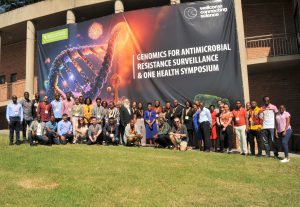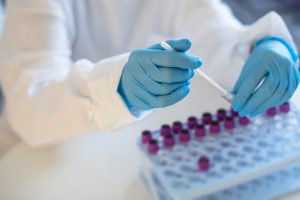Annually, over 12.7 million people are diagnosed with cancer worldwide and 7.6 million people die from the disease. This is more than the combined deaths from AIDS, malaria and TB, according to the Union for International Cancer Control (UICC).
World Cancer Day takes place annually on 4 February and the theme for 2012 is ’Together it is possible’ because it is only by every person, organisation, and government doing their part that the world will be able to reduce premature deaths from cancer and other non communicable diseases by 25% by 2025.
Without action, the worldwide cancer burden is expected to reach 26 million new diagnoses and 17 million deaths by 2030, with the most rapid increases occurring in low- and middle-income countries.
In South Africa, the National Cancer Registry which is kept by the NHLS has collected information on cancer diagnoses since 1986. Registry figures indicate that prostate cancer is the most commonly diagnosed cancer in males, followed by lung, oesophagus, colon/rectum and bladder cancers. In women, breast cancer is the leading cancer diagnosis, followed by cancers of the cervix, uterus, colon/rectum and oesophagus.
The National Cancer Registry plays a vital role in maintaining and developing national and international awareness of the enormous and growing problem of cancer in South Africa. Government bodies including the Departments of Health, Home Affairs and Finance need to know how many people develop and die from cancer. The data collated by the Registry are also critical to the financial planning of many private sector bodies including medical aids, life insurance companies, pharmaceutical companies, private hospital groups and financial institutions.
Last year, new regulations were gazetted making reporting of cancer diagnoses to the Registry compulsory; this will ensure more effective collection and reporting of cancer statistics. Health authorities will now be able to better determine healthcare resource allocation, evaluate treatment, allocate funding for prevention and monitoring strategies, and aid pharmaceutical companies to develop more effective therapies.
There is hope though, as 30-40% of cancers are preventable say the UICC, and one-third of cancers can be cured through early diagnosis and treatment. How can you help protect yourself and reduce your chances from dying from cancer?
• Stop smoking. Tobacco kills more than five million people worldwide a year, an average of one person every six seconds. It accounts for one in 10 adult deaths worldwide. Tobacco use, particularly smoking, is the single biggest cause of cancer in the world, responsible for more than a quarter of all cancer deaths, including cancers of the lung, mouth, throat, nose and sinuses, liver, pancreas, stomach, cervix, breast, bowel, kidney and bladder.
• Moderate alcohol consumption. A strong association has been found between alcohol and mouth, oesophageal, laryngeal, pharyngeal, breast and liver cancers. People who drink heavily in combination with smoking are even at higher risk for most of these cancers.
• Stay out of the sun on very hot days and off sun beds. Excessive exposure to ultraviolet radiation is associated with different types of skin cancer; between 50% and 90% of skin cancers are caused by excessive UV exposure.
• Follow a healthy diet, and exercise. Obesity and lack of physical activity may account for 20-30% of several major cancers (colon, breast (postmenopausal), endometrial, kidney and oesophagus). Some studies have also reported links between obesity and cancers of the gallbladder, ovaries and pancreas.
So remember, ‘Together it is possible’ – life style changes, early detection, and regular examinations can help us beat the big C.




